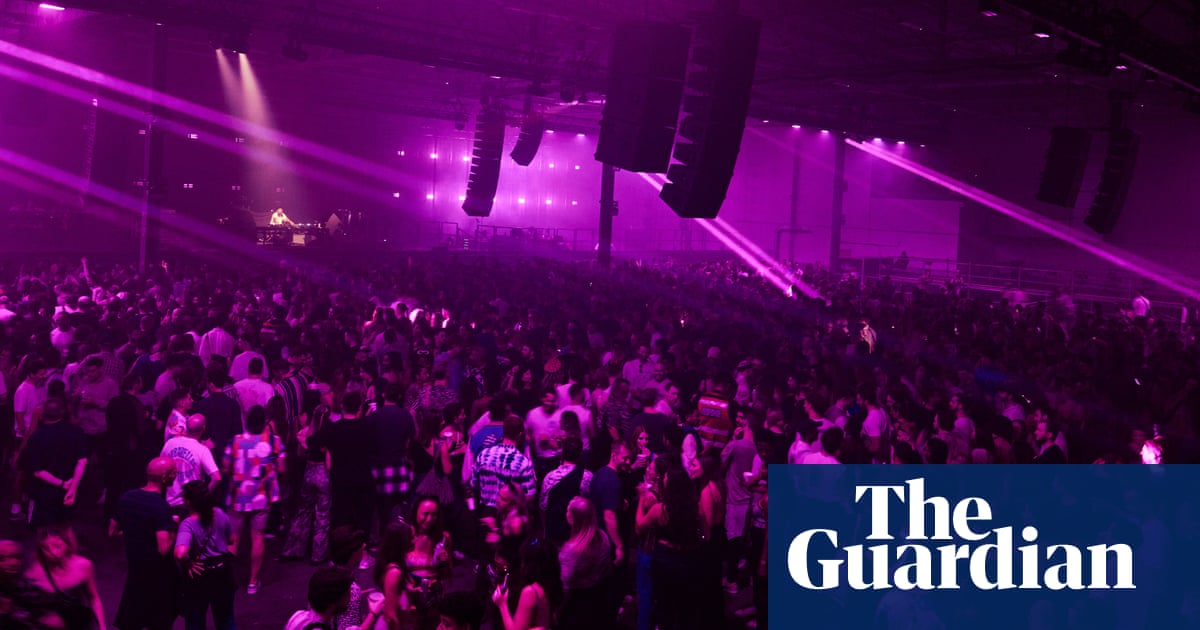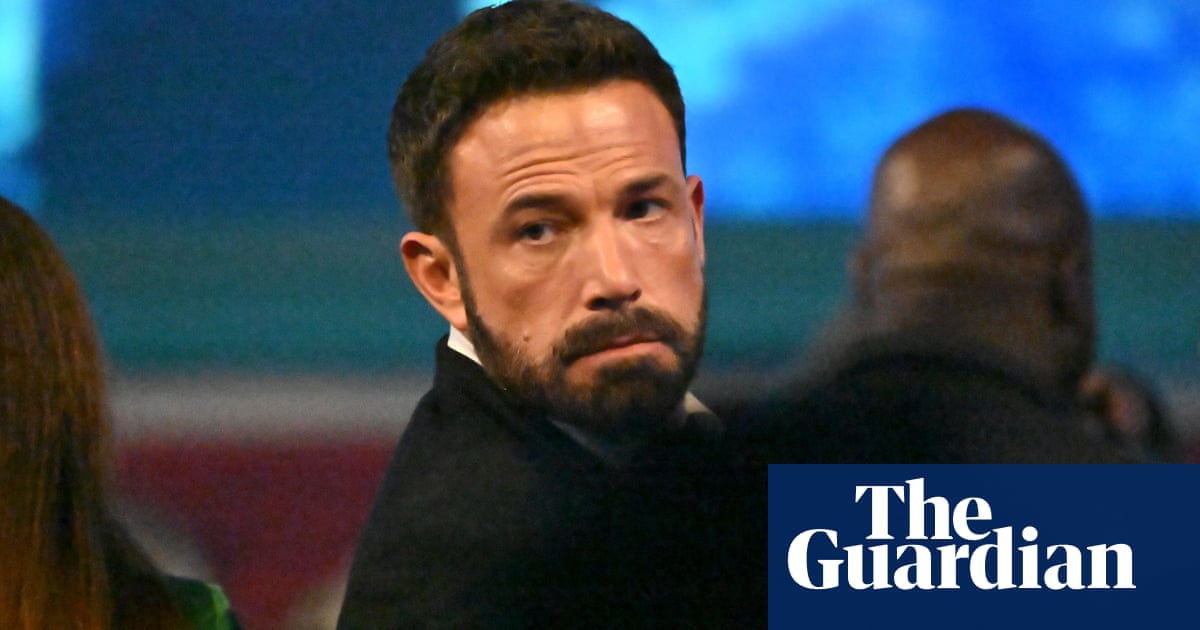
eath in Paradise is the Céline Dion of British TV: mocked in adolescence, tolerated in its prime, beloved in its dotage. When the show debuted in 2011, it was annihilated by critics, including at this newspaper. “The TV equivalent of a boring holiday timeshare,” the Guardian noted. “Everyone’s a caricature, their essential qualities semaphored with a brutal simplicity,” the Independent observed. “A macabre advertisement for a tropical juice drink,” quipped the Telegraph.
And yet … it may not feature Ruth Wilson in a felt cloche with a CGI monkey, or the implacable Mark Rylance in a codpiece, but Death in Paradise has been pulling in ratings bigger than flagship BBC dramas on a modest budget, using a cast of C-list actors, week after week, for nine years. The show is licensed to more than 230 territories and is often the best-performing drama on the BBC; its most-watched episode, series six premiere Erupting in Murder, pulled in more than 9 million viewers, while last year’s series averaged 8.14 million weekly viewers, making it the most-watched programme of the day. (By comparison, Wolf Hall pulled in about 3-4 million viewers an episode.)
Death in Paradise has spawned a lucrative book series, and increased tourism in Guadeloupe, where the show is filmed. There is even Death in Paradise fanfiction. With season 10 now airing on the BBC, and with two more seasons already commissioned, you might reasonably ask: why has a show that has been universally savaged by critics proved to be a ratings juggernaut for nearly a decade?
Death in Paradise follows the efforts of a bumbling, eccentric British/Irish detective – there have been four in total, played by Ben Miller, Kris Marshall, Ardal O’Hanlon and Ralf Little – to solve a murder on the fictitious Caribbean island of Saint Marie. The detective is assisted in his efforts by a team of local police officers – usually, a hyper-competent female detective (played by Sara Martins in earlier seasons, and Joséphine Jobert in later seasons), as well as a few more junior police officers, who fulfil a more comic role (Tobi Bakare rounds out the current cast, while Shyko Amos did feature but left the show before filming the 10th series). There is also a poorly-rendered CGI lizard called Harry, but the less said about those scenes, the better.
Virtually every episode goes like this: there is a pre-title credits murder in an exotic island location (a radio station, a lighthouse, a luxury villa). The team is called to the scene of the crime, which appears unsolvable. Four suspects immediately present themselves. After a series of red herrings and clues, the detective solves the crime in a stroke of genius. He assembles all the suspects at the end of the episode and tells them who did it. Inexplicably, the murderer confesses. Woven throughout is some light serialisation: the owner of a local bar is running for mayor, the detective goes on a date with a holidaymaker, a junior police officer is taking detective exams.
When Death in Paradise creator Robert Thorogood came up with the show, he was 35 years old, a screenwriter with no credits, who had been trying and failing to bring a script to TV for 15 years. Nothing had even made it to pilot. His wife was supporting him financially. He was, effectively, a failure. “I’d go to parties,” Thorogood tells me, “and people would ask me what I did, and when I told them I was a screenwriter, they’d ask me whether they’d seen any shows I’d worked on. When I said, ‘No you haven’t’, I’d feel like such a fraud.”
And then, in March 2007, Thorogood read about the suspicious death of English cricket coach Bob Woolmer during the World Cup in Jamaica. The British authorities suspected foul play, so they sent a Metropolitan police detective out to investigate. Huh, Thorogood thought: “There’s a murder mystery show here.” He had been trying to get a job in the Midsomer Murders writing room for years, so he had three murder mystery episodes already written – and they became the first three episodes of Death in Paradise. He entered a screenwriting contest run by Tony Jordan at Red Planet Pictures in 2008 (the production company still makes the show to this day) and the rest is history. “I tried so hard for so many years and failed for so long,” he tells me. “And then, lo and behold, it happened. I still pinch myself. I can’t believe I get to write a TV show.”
Over the years, characters in Death in Paradise have been shot, strangled, poisoned, thrown to their deaths, bludgeoned, electrocuted, drowned, stabbed with an ice pick and, in at least one case, intentionally sent into a fatal anaphylactic shock. And yet no one is ever raped or sexually abused on Saint Marie. There was a domestic violence storyline in season nine, but the writers agonised over whether to do it. “A few series before,” says the writer James Hall, “we’d have said that we’d never do that.”
Death in Paradise is a dark show, in the sense that people routinely die, and gruesomely, but it is not a “dark” dark programme. “We’ve had discussions about an incest storyline,” says Thorogood, “but that feels like a different show.” Most of the time, you never see the killing blow – only an ominous breeze from an open window, or a faint scream.
It is this bloodlessness that is the key to its success. “It’s a safe 9pm show that the family can watch together,” says the executive producer Tim Key. “There’s a puzzle to work out. The locations are beautiful, and the characters are likable and warm. And it’s funny! It doesn’t take itself too seriously.” Plus, of course, the show airs at a time of year when British audiences yearn for a glimpse of sunnier climes. Key is responsible for getting Death in Paradise back on air in a pandemic: when we chat, his phone pings constantly with email notifications, and he has the harried air of a man commissioned to pull off the impossible, just barely managing to scrape through.
Death in Paradise was due to start pre-production in February 2020. But the Covid pandemic threw everything up in the air. “It’s been insane,” says Key. “That’s the truth.” Everyone stood down for two months, while the team at Red Planet wrote Covid-safe production protocols from scratch – luckily, the show had pandemic insurance. Normally, the show would have wrapped filming by October, but they were still filming in mid-December, when Key and I spoke. “We’re delivering some episodes the week of transmission next year,” says Key, “which is very, very tight.”
This is the 10th season of the show – a decade of bumbling expatriate police detectives sweating into suits under the Caribbean sun. To celebrate, producers are bringing back Miller, for what I presume is a flashback (as the character was murdered at the end of his run), and fan favourite Jobert, in a recurring slot. But there are no plans to wrap up the show any time soon. “Our ratings last year were extremely healthy,” Key says. “When the audience tires of it, we’ll have a separate conversation. But right now, there are no plans to stop making the show.” And why would there be? The show is ratings gold on an aluminium budget – Key will not tell me the production budget, but he admits it’s not huge. “It’s very cost effective,” he says. “We box very clever.”
And so, back to the critics. “I found the reviews very difficult,” Miller admits. “I’m one of those actors who reads reviews.” Little wishes that people would appreciate the precision with which the show is made – this is not disposable TV, but a product of artisanal craft and care, each episode as well-turned as a handmade music box. “One thing I’m trying to discourage the use of is the phrase ‘guilty pleasure,’” says Little, “because this is one of the most carefully worked-on series I’ve ever been on. It takes a huge amount of work behind the scenes to make the show look this easy, and because it looks easy that’s part of its charm. It’s easy to write off.”
The show’s writers have been tasked with writing a locked-room mystery week after week, for a decade, without recycling a murder method. (Some episodes are less successful than others – a series nine denouement, in which it was revealed that a male cyclist was murdered by a woman who impersonated him in the final stages of a race, stretched incredulity too far.) “It’s the hardest type of storytelling there is,” says Thorogood. “By a country mile. I’ve written every type of show, from drama to thriller to comedy, and nothing comes close to being as hard to write as a murder mystery. You just sit there and weep at the thought of how hard it is.”
Mostly, the show’s writers start from the ending, and work backwards. “There’s a grammar to learn,” says Hall. “A rulebook.” Death in Paradise is influenced by classic detective shows: Poirot and Marple, obviously, but also Columbo, Murder She Wrote, and Monk. “The main rule we stick to is that you have to play fair with the audience,” Hall says. “As the lead detective solves the crime, in theory the audience should be able to work it out as well. All the clues should be there.” He is most proud of a series five murder in which a tourist was found dead, slumped against a bathroom door, in an apparent suicide. It emerges that the killer placed the body on a towel, which was then used to drag the corpse to the door. “We were really pleased with that one,” says Hall. “We often talk about it when we’re meeting with prospective writers.”
If Death in Paradise was a dated show when it aired – a throwback to Peter Falk in a trench coat asking just one more thing – it is a museum piece now. For starters, the cast of mostly Black supporting actors call the show’s white, male lead “Sir”, and rely on him to solve crimes that are apparently beyond their wits to work out. Key bristles when I suggest that the show is a celebration of white male genius. “Our intention in having the detective solve the crimes,” says Key, looking uncomfortable, “is to show that that’s sort of the only thing that character can do effectively, because he’s an incredibly broken character, and socially inept.” He also insists that producers would cast a female detective in the future. “There’s no rule it always has to be a man,” Key says. And Jobert points out that the show’s cast is predominantly Black, which is unusual for primetime TV on the BBC. “In France,” Jobert says, “where I am from, you’d never see a show like this on TV … French production companies say that people won’t watch shows if there are too many Black people on screen.”
Racial dynamics aside, is Death in Paradise a good or bad show? The answer goes to the heart of critical taste. I have grappled with this question in the dead of the night. Sometimes I watch the show – it behoves me to admit that I am a longtime Death in Paradise fan – and marvel at its ingenuity. But the dialogue is 75% exposition, the acting is often leaden, the characterisation lightweight, and sometimes the show’s producers reuse filming locations from earlier episodes (Guadeloupe only has so many luxury villas), and you can tell. “It’s not The Wire,” Miller jokes. And yet I have watched all nine seasons of Death in Paradise with great relish. The critics may not be entirely wrong, but they’re not totally right, either. It’s confusing.
Little believes Death in Paradise is not a bad show, just an unfashionable one. The show made its debut in the middle of the Scandinavian crime noir boom. (The Killing ran from 2007-2012, while The Bridge first aired in 2011). “I love The Bridge as much as anyone,” says Little, “but Death in Paradise is a much less dark, foreboding show. Tonally, it completely bucked the trend back in the day, and I suppose for critics it did feel a bit old fashioned … the timing was very difficult. Critics … they like to be surprised. They like to find something new.”
Does any of this matter? Ultimately, audiences don’t care that the show has been tried and convicted of atrocities against scripted drama. They adore it anyway. “With every respect to the critics,” Key says, “we don’t make it for them.”
“It’s tricky for critics when a show is only really being made for audiences, not for them,” observes Miller, “because all they can do is compare the show to shows that are built to withstand criticism. This show is not really trying to do anything other than entertain an audience, and do that with as much integrity as is required.”
If, as Miller says, the test of whether Death in Paradise is a good show ultimately lies in whether it fulfils the purpose it set out for itself – to entertain audiences – then the answer is unequivocal: it’s one of the greats. As Céline Dion once said to an Elle magazine interviewer in 2007, when asked if the critical mauling of her records bothered her: “We’ve been sold out for four years. The audience is my answer.” And that’s starting to impact the critical response. “I have noticed a bit of a shift,” says Little. “People are grudgingly starting to say, ‘actually, this isn’t so bad. We might have something here that is pretty amazing, that we were overlooking because there was the Bridge and Borgen and all these sexy Scandi noir shows.’”
Death in Paradise is good. There, I’ve said it. If you want me, you’ll find me in a locked room, back to the door, convicted of crimes against TV.












